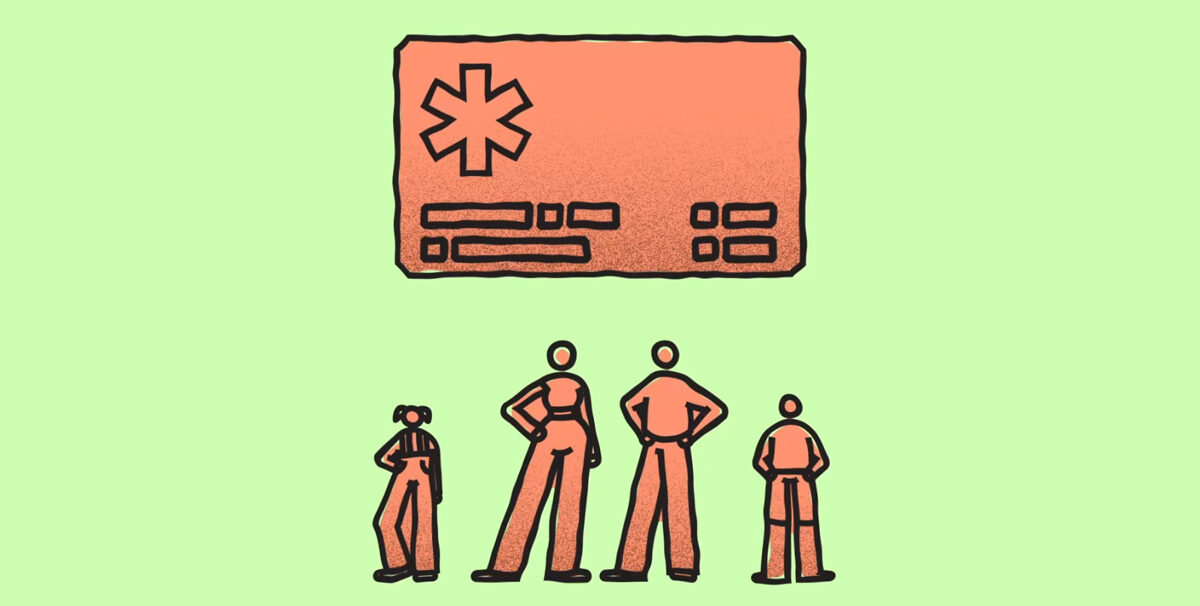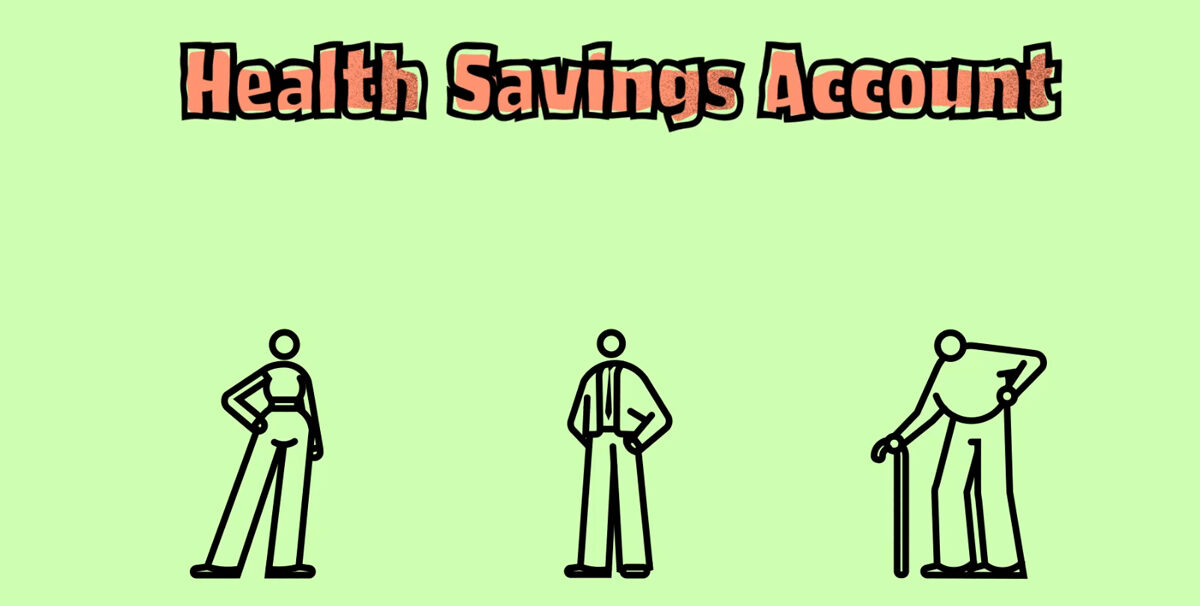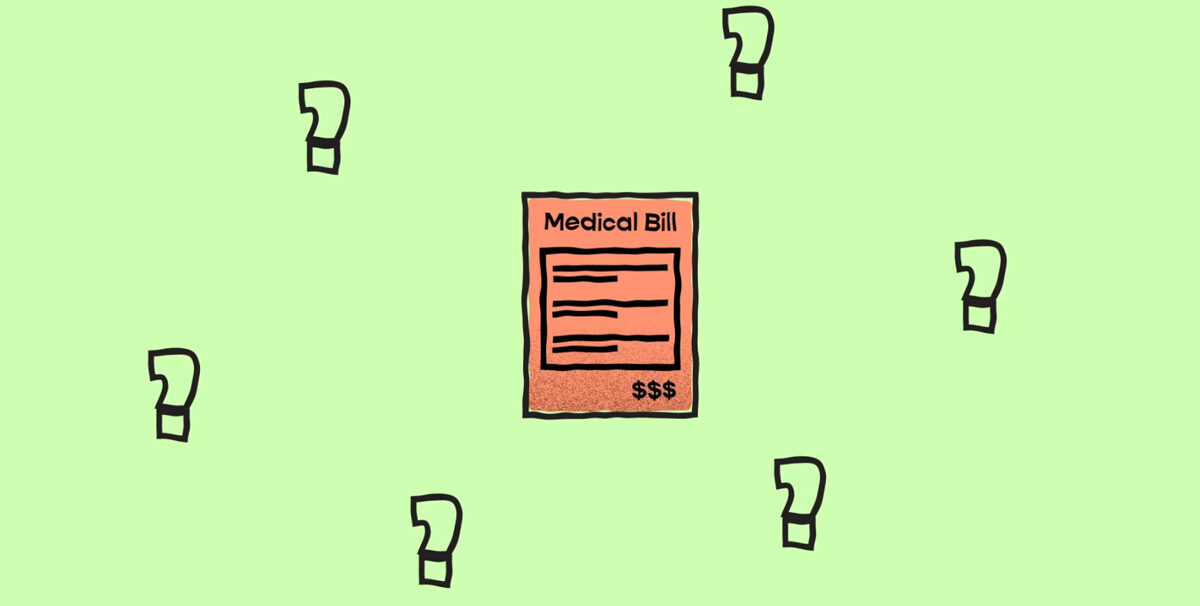An individual’s mental health—how one thinks, feels and acts—can change over time due to factors like workload, stress, and work-life balance. With 1 in 5 American adults experiencing mental illness (including stress, anxiety, and depression) each year, it is apparent that mental health matters.
May is National Mental Health Awareness Month but prioritizing mental & emotional health is essential year-round—especially during the pandemic. In fact, mental health in the United States continues to worsen as the pandemic persists. Feelings of loneliness and isolation contribute to increased anxiety, depression, and suicidal ideation, especially among youth and young adults. Although record levels of anxiety and depression are being reported, the mental burden of the pandemic has fortunately enabled more transparency and empathy around mental health. This month, focus on the support you need yourself, as well as ways to support those around you at work or at home. The easiest question to ask yourself or someone else is “How are you doing.” And if their (or your) response is “good,” ask how it is “good.”
Take action each week:
The Connection Between Mental Health & Chronic Illness
Living with a chronic illness can be draining, both physically and mentally. As such, people who live with a chronic illness are at a higher risk of developing a mental health condition. Likewise, mental health symptoms can cause a flare-up or worsen if you have a chronic health condition. This article explores the connection between mental health and chronic illness and provides self-care tips.
Co-occurring Conditions
Both mind and body are affected by physical and emotional changes as well as social aspects (e.g., income, housing and employment). These factors can increase the likelihood of someone with a chronic illness developing a coexisting condition, such as a mental health condition. In addition, people living with chronic conditions often experience emotional stress and chronic pain. Physical changes in the body and medications could also exacerbate physical and mental issues.
Depression is one example of the prevalence of co-occurring conditions. Research shows that the risk for depression is higher among those suffering from chronic illness. According to the Centers for Disease Control and Prevention, the following amount of chronic illness patients also have depression:
- Parkinson’s disease: 51%
- Cancer: 42%
- Diabetes: 27%
- Cerebrovascular disease: 23%
- Cardiovascular disease: 17%
These statistics validate that living with a chronic illness is often challenging for both the body and the mind. Treatment for coexisting conditions is crucial to managing such conditions fully.
Taking Care of Yourself
Managing multiple chronic conditions requires self-care, and mental health conditions can make caring for oneself difficult. Consider the following physical and mental self-care tips:
- Stay connected to health care professionals. You should be able to talk openly with your doctor about your ongoing questions and concerns to help you feel more settled.
- Surround yourself with support. Living with a chronic illness may feel lonely, but it’s essential to surround yourself with personal and professional support. Don’t be afraid to ask for help when you need it. Some may find support groups and counseling helpful.
- Get enough sleep. Quality sleep is essential for physical and mental well-being. Although it may be hard to sleep at times, try to maintain your usual sleeping pattern.
- Eat healthy, balanced meals. Eating healthy is vital for your overall physical and mental health. Furthermore, certain chronic diseases may require a specialized diet, so follow nutrition guidance from a health care professional.
- Stay active. Your health care professional can guide and recommend the best way to stay active and get daily movement. Physical activity can also give your mind a rest.
- Take time to unwind. It’s essential to still engage in activities you enjoy. It may also be helpful to explore stress-relief activities like meditation.
If you live with a chronic health condition, you likely spend a lot of time and energy managing the physical impact of your illness. However, a little self-care can go a long way. Be extra kind to yourself, especially during flares.
Summary
Living with a chronic health condition can take a toll on your body and affect one’s ability to cope with psychological and emotional stress. If you live with a chronic illness and have experienced symptoms of a mental health condition, you’re not alone. It’s not uncommon to experience feelings such as fear, sadness or anger, especially right after a diagnosis or during a flare-up. Mental health recovery takes time, but treatment can improve one’s quality of life and allow the focus to shift to chronic health condition management.
If you’re concerned about your mental health, talk to your doctor, a licensed mental health professional or contact the Substance Abuse and Mental Health Services Administration’s National Helpline by calling 800-662- HELP (4357).
Selecting a Mental Health Professional
For the many Americans that seek help from mental health professionals, selecting a provider is an important decision that should be made carefully. Credentials, competence and your comfort level with the provider are worth considering.
Psychiatrists: Have medical degrees, can prescribe medication and have completed three years of residency training (beyond medical school) in mental health care.
Psychologists: Have a doctorate in psychology and, generally, complete one or two years of internship prior to licensure.
Professional Counselors: Have a minimum of a master’s degree in a mental health discipline, and at least two years of post-graduate supervised experience.
Marriage and Family Therapists: Typically have a master’s degree or doctorate in marriage and family therapy, and at least one year of supervised practice.
Social Workers: Have a minimum of a master’s degree in social work and at least two years of post-graduate supervised experience.
Who’s the Best Fit?
Finding the right mental health professional requires a bit of work. If you are depressed or have another serious mental illness, it can be difficult to do that work on your own. If you are in this situation, ask family, friends or your primary physician for assistance. Here are some dependable ways to locate a provider:
- Through referrals by physician, friends or family members
- Ask your health insurance company for a list of providers
- Check your Employee Assistance Program (EAP) at work for a referral
Also take into account factors that are important to you like age, race, gender, religion and cultural background. It is not wrong to rule out certain providers because they don’t meet the criteria; you will be establishing a long-term relationship with this person, and you need to feel as comfortable with them as possible.
Questions to Ask
- What types of treatment do you provide?
- What is your training or experience with my problem area?
- How will we determine treatment goals?
- How will we measure my progress?
- What do you expect from me?
- What are your office hours?
- How do you handle emergencies?
- Do you charge for missed appointments?
- Are you in my health plan’s provider network?
The Impact of Sleep on Mental Health
Not only is your physical health affected when you don’t get enough sleep, but it also takes a toll on your mental health. In fact, mental health and sleep are so closely related that a lack of sleep can often lead to issues such as anxiety or depression.
Unfortunately, studies consistently show that Americans struggle to get a good night’s sleep. According to the Institute of Medicine, insomnia—a common sleep disorder that causes one to have trouble falling or staying asleep—occurs in 30 million Americans.
This article explores the relationship between sleep and mental health and provides tips for getting a better night’s sleep.
Side Effects of Lack of Sleep
According to the American Academy of Sleep Medicine, you should get at least seven to eight hours of sleep per night. Lack of sleep or poor quality sleep can increase the risk of mental health disorders.
According to a study published in Sleep Medicine, sleep disturbances were linked to higher levels of psychological distress. Further, sleep sharpens cognitive skills such as attention, learning and memory. As a result, inadequate sleep can impact a person’s ability to respond to minor stressors and events properly.
Notably, depression and anxiety are some of the most common mental health issues linked to lack of sleep. Depression is a depressed mood or loss of interest in activities, causing significant impairment in daily life.
According to the Anxiety and Depression Association of America, nearly 50% of people with depression are also
diagnosed with an anxiety disorder. Anxiety refers to feelings of tension, worried thoughts and sometimes even physical changes such as increased blood pressure or heart rate. Generally, these or other types of symptoms are recurring with anxiety.
Tips For A Better Night’s Sleep
Sleep is important to your mental health and overall functioning. Consider the following tips for better sleep:
- Keep a consistent sleep schedule.
- Set a bedtime.
- Only go to bed when you’re tired.
- Establish a bedtime routine.
- Make your bedroom quiet and relaxing.
- Limit exposure to bright light in the evenings.
- Turn off electronic devices at least 30 minutes before bedtime.
- Don’t eat a large meal before bedtime.
- Exercise regularly.
- Maintain a healthy diet.
- Avoid consuming caffeine in the afternoon or evening.
- Avoid consuming alcohol before bedtime.
- Reduce your fluid intake before bedtime.
Takeaway
Getting proper sleep is extremely important to improving and maintaining good mental health. For more information on how to improve your sleep habits or to address sleep issues, contact your doctor today. Additionally, if you’re concerned about your mental health, talk to your doctor, a licensed mental health professional or contact the Substance Abuse and Mental Health Services Administration’s National Helpline by calling 800-662-HELP (4357).
The Mental Health Benefits of Exercise
While physical exercise is known to be good for your body, it also can help your mind. Research continues to validate that exercise can improve mental health by reducing anxiety, depression and a negative mood. When you include exercise as part of your everyday routine, you’ll be reaping both physical and mental well-being benefits.
This article explores the connection between your body and mind and the mental health benefits of physical activity.
The Connection Between Body and Mind
People who exercise regularly often report having better mental and emotional well-being. Consider the following mental health benefits of exercise:
- Mood boost—Exercise triggers the production of endorphins, serotonin, dopamine and oxytocin, moodboosting chemicals in the brain. Those four chemicals are responsible for feelings of happiness.
- More energy—Increasing your heart rate and boosting oxygen circulation in your body can make you feel more energized. It may seem counterintuitive, but expending energy can actually provide a spark of vitality you may need to get through the day.
- Better sleep—Exercise can help regulate your sleep patterns and reduce the time it takes to fall asleep. The more active you are, the more your body pushes you to sleep and reset at night. Try to exercise for at least one to two hours before bed so your brain has enough time to wind down.
- Reduced stress—Physical activity reduces the levels of your body’s stress hormones (e.g., adrenaline and cortisol). It’s also linked to lower physiological reactivity toward stress, so exercise can also be a coping strategy for stress.
- Improved memory—Endorphins can help you concentrate and feel mentally sharp for work or other tasks.
- Higher self-esteem—When exercise becomes a habit, you may feel more powerful or confident. You may also feel accomplished when you meet your fitness goals.
- Stronger resilience—Exercise is a healthy way to build resilience and cope with mental or emotional challenges instead of turning to negative behaviors, alcohol or other substances.
Any movement helps since physical activity is what can be beneficial to mental well-being. Exercise can take your mind off problems or negative thoughts by redirecting them to the activity at hand.
Getting Started
The U.S. Department of Health and Human Services recommends that adults get moderate-intensity aerobic activity for at least 150 minutes each week and muscle-strengthening activities two times per week. It may seem like a lot at first, but if you break it down, that’s 30 minutes of moderate exercise five times a week.
Even if you don’t have time for 30 minutes to exercise, find something that works for you. Any physical activity is better than none. Understandably, motivating yourself for a workout can seem more challenging if you’re battling depression, anxiety or other mental health issues. Consider these tips for incorporating exercise into your routine:
- Start with short exercise sessions and slowly increase your time. The goal is to commit to moderate physical activity and build it into your daily routine.
- Find an activity you enjoy and incorporate it into your routine for a body and mind boost.
- Schedule workouts when your energy is the highest.
- Exercise with a friend. Companionship can make it more fun, so work out with a friend or loved one to make it more enjoyable or help you stick to the routine.
It comes down to making exercise a fun part of your everyday life so you can gain both physical and mental health benefits. Talk to your doctor if you have any questions or concerns about incorporating exercise into your day.
Prioritizing Mental Health Amid Inflation
Financial stress can be a burden, but it can also negatively impact your mental health. During this period of increased inflation, it is especially important to understand the relationship between financial and mental wellness so you can apply strategies to help you improve both areas of your life.
Inflation and Anxiety
According to the Bureau of Labor Statistics, inflation increased 8.5% year-over-year in July. After a peak of 9.1% in June, these year-over-year increases mark the highest inflation rate since 1981. This has led many Americans to reexamine their spending even when it comes to everyday needs such as groceries and gas. According to results from the American Psychiatric Association’s Healthy Minds Monthly Poll, nearly 90% of residents in the United States report “feeling anxious” or are “very anxious” about inflation.
The anxiety induced by financial stress can contribute to heart disease, high blood pressure, insomnia, more frequent colds and minor illnesses, and more. Further, many cope with financial stress in unhealthy ways, such as smoking, drinking and overeating, which can decrease overall health.
Financial distress and mental health challenges can be tough enough. But to make matters worse, when people’s anxiety takes a toll on their physical health, it can often lead to increased medical bills. At a time when inflation is so high, this can worsen anxiety for those already experiencing it.
How to Cope
Luckily, there are ways that you can manage your anxiety to help mitigate these effects. Consider the following tips:
- Reframe your mindset. Shifting your perspective on inflation can be helpful. Try thinking about it like the weather: You may not be able to control the weather, but you can dress for it. Similarly, you can prepare for inflation by starting an emergency fund, limiting leisure spending and making other changes to your budget.
- Lean on family and friends. Talking with those close to you can help you stay grounded and reduce feelings of anxiety. Inflation can affect anyone, so it can help to talk with those you love about the struggles you are all likely facing.
- Seek professional help. Waiting to get help when you need it is only going to lead to worse mental—and possibly physical—health. If you’re concerned about your mental health, talk to your doctor or a licensed mental health professional or contact the Substance Abuse and Mental Health Services Administration’s National Helpline.
- Work with a financial planner. Planning out your spending with a professional can help eliminate uncertainty around managing your money. If feasible, consider having a financial planner assist with your budgeting so you can have more peace of mind when it comes to your financial choices and outcomes.
- Connect with the community. Reaching out to community-based organizations can help connect you with programs that can provide food resources, rent assistance, financial guidance and other resources to those who qualify. Consider looking into resources near you and seeing if you are eligible for assistance.
- Avoid negative media. Consuming too much negative content can increase feelings of anxiety. Set a limit for how much news-related information you consume each day, and focus instead on other activities, such as going for a walk or reading a book.
To deal with the current economic uncertainty, it’s best to focus on what you can control. That can mean fitting higher costs of necessary goods into a budget, prioritizing a positive mindset and focusing on your mental health.
Takeaway
Inflation is still quite high, and its impact is leading to increased anxiety among many Americans. With that increased anxiety often come negative physical effects, so it’s important to employ various coping mechanisms to ensure you remain healthy. Whether avoiding negative media or connecting with those close to you, there are many ways to help reduce inflation anxiety.
Check with your employer for mental health resources and financial assistance, such as an employee assistance program (EAP) or other resources. Additionally, you can contact the Substance Abuse and Mental Health Services Administration’s National Helpline by calling 800-662-HELP (4357).





